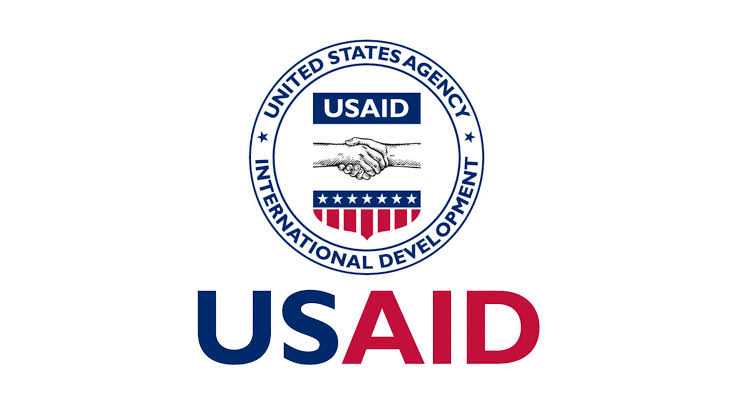USAID Programs and Impact
The United States Agency for International Development (USAID) is dedicated to promoting sustainable development and addressing global challenges. Through its various programs, USAID works to improve the lives of people around the world and create a more stable and prosperous future.
1. Humanitarian Assistance
One of the key areas of focus for USAID is providing humanitarian assistance to those affected by natural disasters, conflicts, and other emergencies. USAID works to deliver life-saving aid, including food, water, shelter, and medical supplies, to those in need. The agency also helps to build the capacity of local communities and organizations to respond to emergencies and recover from crises.
2. Economic Development
USAID plays a crucial role in promoting economic growth and reducing poverty in developing countries. The agency works to strengthen local economies, improve access to financial services, and support entrepreneurship and job creation. USAID also works to improve agricultural productivity, enhance trade and investment, and promote sustainable economic development.
3. Health and Education

4. Democracy and Governance
USAID supports democratic governance and human rights, working to strengthen institutions, promote accountable and transparent governance, and protect the rights of marginalized populations. The agency works with local partners to promote free and fair elections, strengthen the rule of law, and support civil society organizations. USAID also works to promote peace and security, including efforts to prevent and respond to conflicts.
Through its programs and initiatives, USAID has made a significant impact in improving the lives of millions of people around the world. The agency’s work has helped to reduce poverty, improve health outcomes, promote economic growth, and advance democratic governance. USAID’s commitment to sustainable development and its focus on empowering local communities make it a vital force for positive change.
Overview of USAID Programs
The United States Agency for International Development (USAID) is an independent agency of the U.S. federal government that is primarily responsible for administering civilian foreign aid and development assistance. USAID’s programs aim to address global challenges, promote economic growth, and improve the lives of people in developing countries.
USAID operates in more than 100 countries around the world, partnering with governments, civil society organizations, and the private sector to implement a wide range of programs. These programs focus on various sectors, including health, education, agriculture, democracy and governance, economic growth, and humanitarian assistance.
One of the key areas of USAID’s programs is health. USAID works to improve access to quality healthcare, prevent the spread of infectious diseases, and strengthen health systems in developing countries. Through partnerships with local governments and organizations, USAID supports initiatives such as immunization campaigns, HIV/AIDS prevention and treatment programs, and maternal and child health services.
Another important focus area for USAID is education. USAID works to improve access to quality education and promote literacy in developing countries. The agency supports initiatives such as teacher training programs, school infrastructure development, and the provision of educational materials. USAID also promotes girls’ education and works to reduce gender disparities in education.
In the agriculture sector, USAID aims to increase food security and promote sustainable agricultural practices. The agency supports initiatives such as agricultural research and development, farmer training programs, and the development of agricultural infrastructure. USAID also works to improve access to markets for smallholder farmers and promote agricultural entrepreneurship.
USAID’s programs in democracy and governance focus on strengthening democratic institutions, promoting human rights, and supporting civil society organizations. The agency works to strengthen electoral processes, promote transparency and accountability, and support the rule of law. USAID also supports initiatives to combat corruption and promote good governance practices.
Economic growth is another key area of USAID’s programs. The agency works to promote entrepreneurship, create job opportunities, and improve access to financial services in developing countries. USAID supports initiatives such as business development programs, microfinance initiatives, and trade capacity building. The agency also works to promote sustainable economic development and support the growth of small and medium-sized enterprises.
In addition to these sectors, USAID also provides humanitarian assistance in response to natural disasters, conflicts, and other emergencies. The agency works to provide life-saving assistance, including food, water, shelter, and healthcare, to affected populations. USAID also supports long-term recovery and reconstruction efforts in post-disaster and post-conflict situations.
Overall, USAID’s programs have had a significant impact on the lives of people in developing countries. Through its various initiatives, the agency has helped improve healthcare outcomes, increase access to education, promote sustainable agriculture, strengthen democratic institutions, and support economic growth. USAID’s work continues to play a crucial role in advancing global development and addressing the world’s most pressing challenges.

Emily Bibb simplifies finance through bestselling books and articles, bridging complex concepts for everyday understanding. Engaging audiences via social media, she shares insights for financial success. Active in seminars and philanthropy, Bibb aims to create a more financially informed society, driven by her passion for empowering others.
